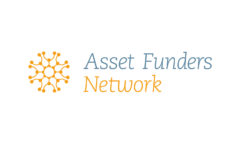Why Care About Care?
OUR ECONOMY DEPENDS ON IT
Authors:
Joi Cheney
Julie Kashen
The pandemic has laid bare the devastating economic and personal costs of our country’s failure to adopt a care infrastructure. For too long, we have left families to shoulder the burden of caregiving and working, taking double and triple shifts, without common-sense protections like universal paid leave, high quality, affordable child care, and home- and community-based services.
This brief lays out how care impacts economic recovery, family economic security and asset building, equity and justice, and the well-being of children, older adults, and people with disabilities.
It highlights the policies needed around child care and early education, paid leave, long-term services and supports (LTSS), and related issues and the ways philanthropy can engage to support the organizations and coalitions working to build the healthy care economy America needs.
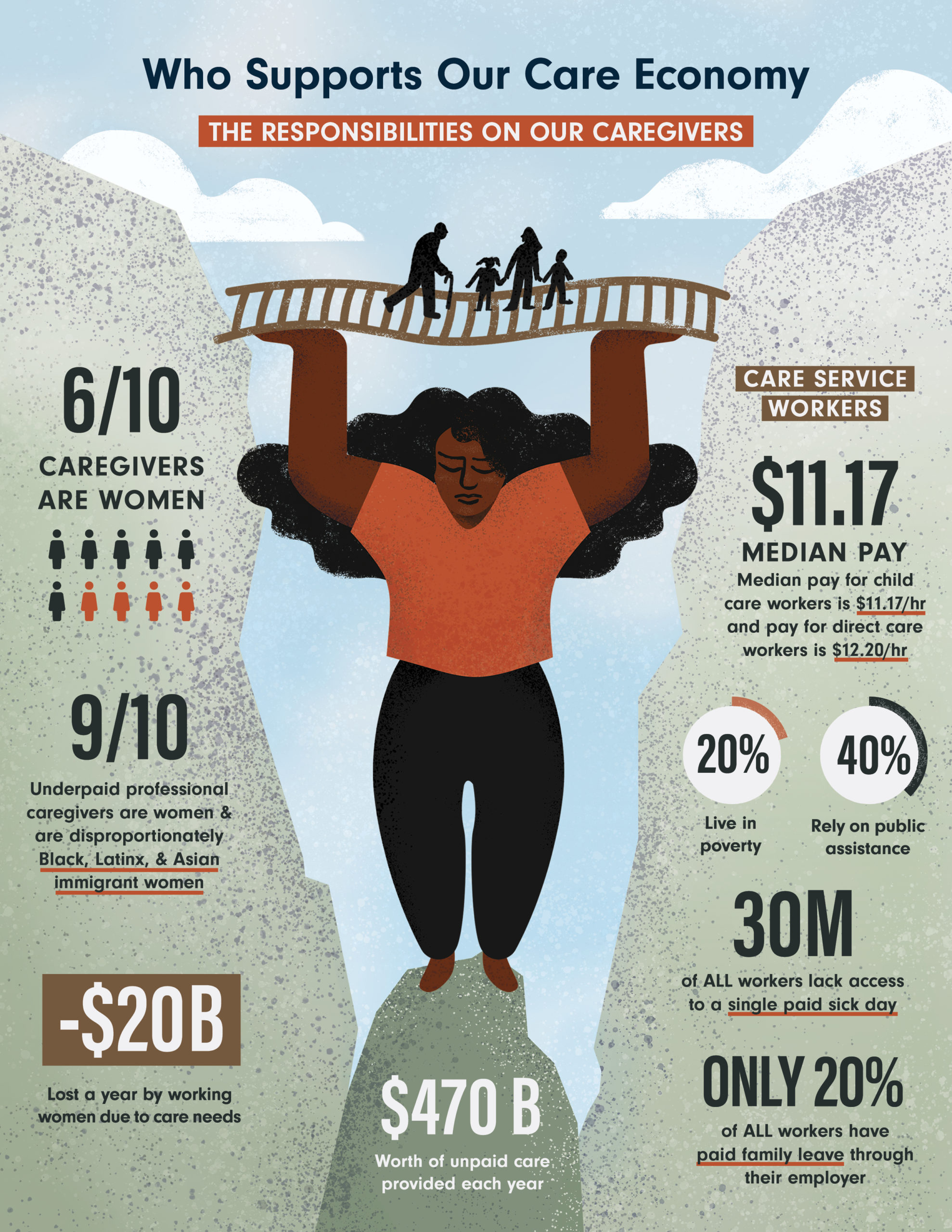
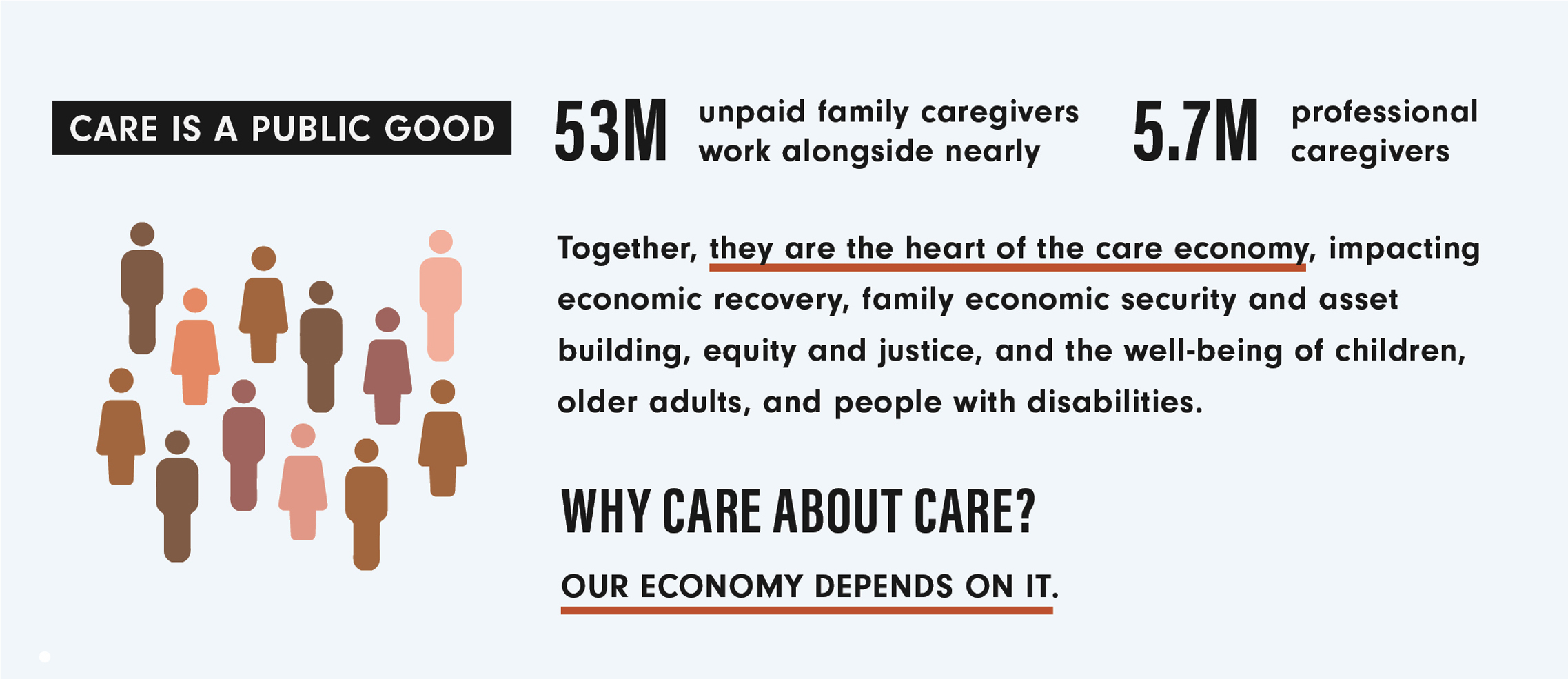
Care is an
Economic Recovery Issue
Investing in care infrastructure will yield millions of jobs in the care sector and support the employment of caregivers, including parents. These elements are crucial for economic recovery.
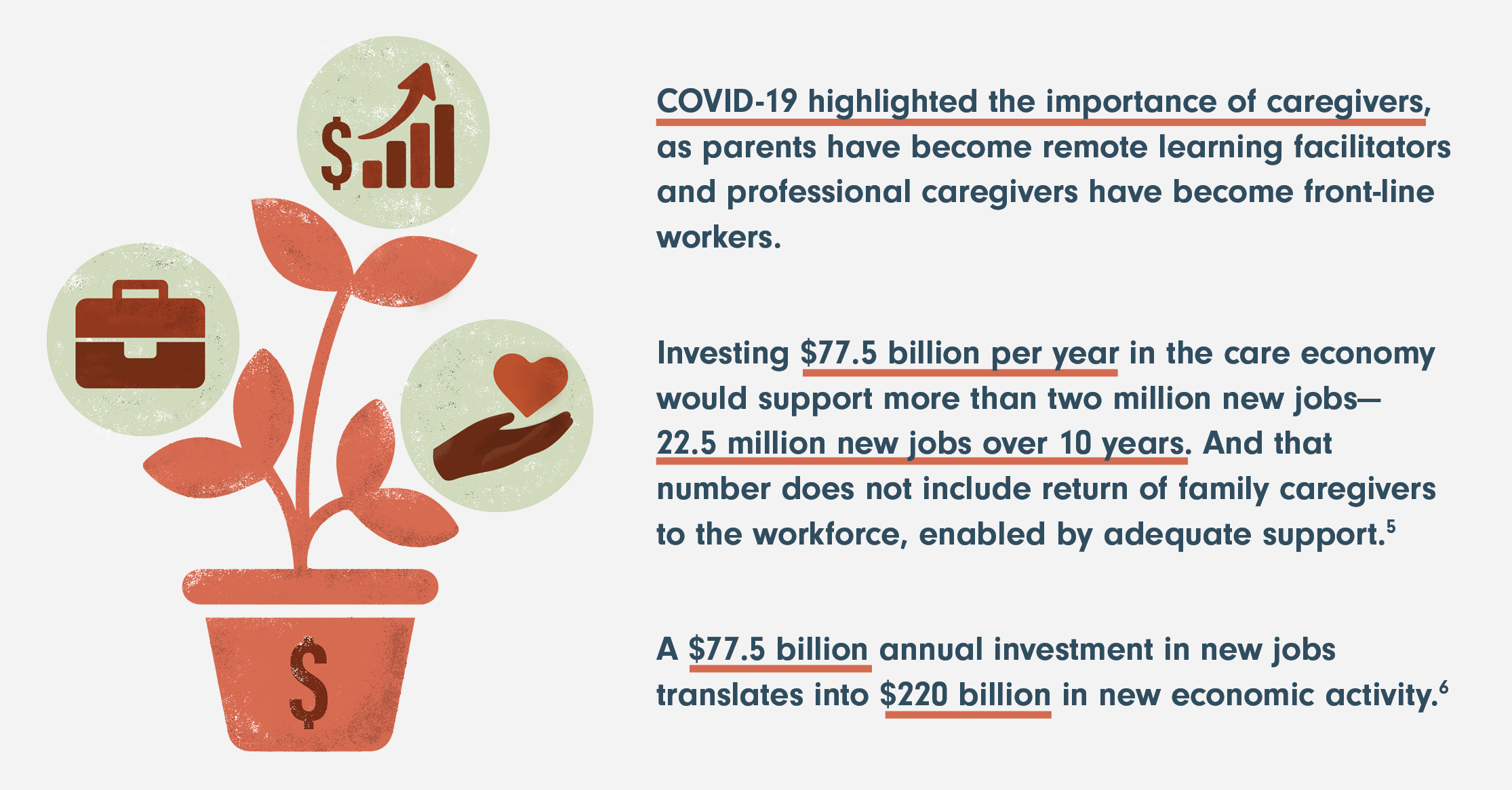
Care is a
Family Economic Security and Asset-building Issue
Paying for care, providing care to family members, and working in the care sector all have detrimental impacts on family economic security and the ability to build wealth.
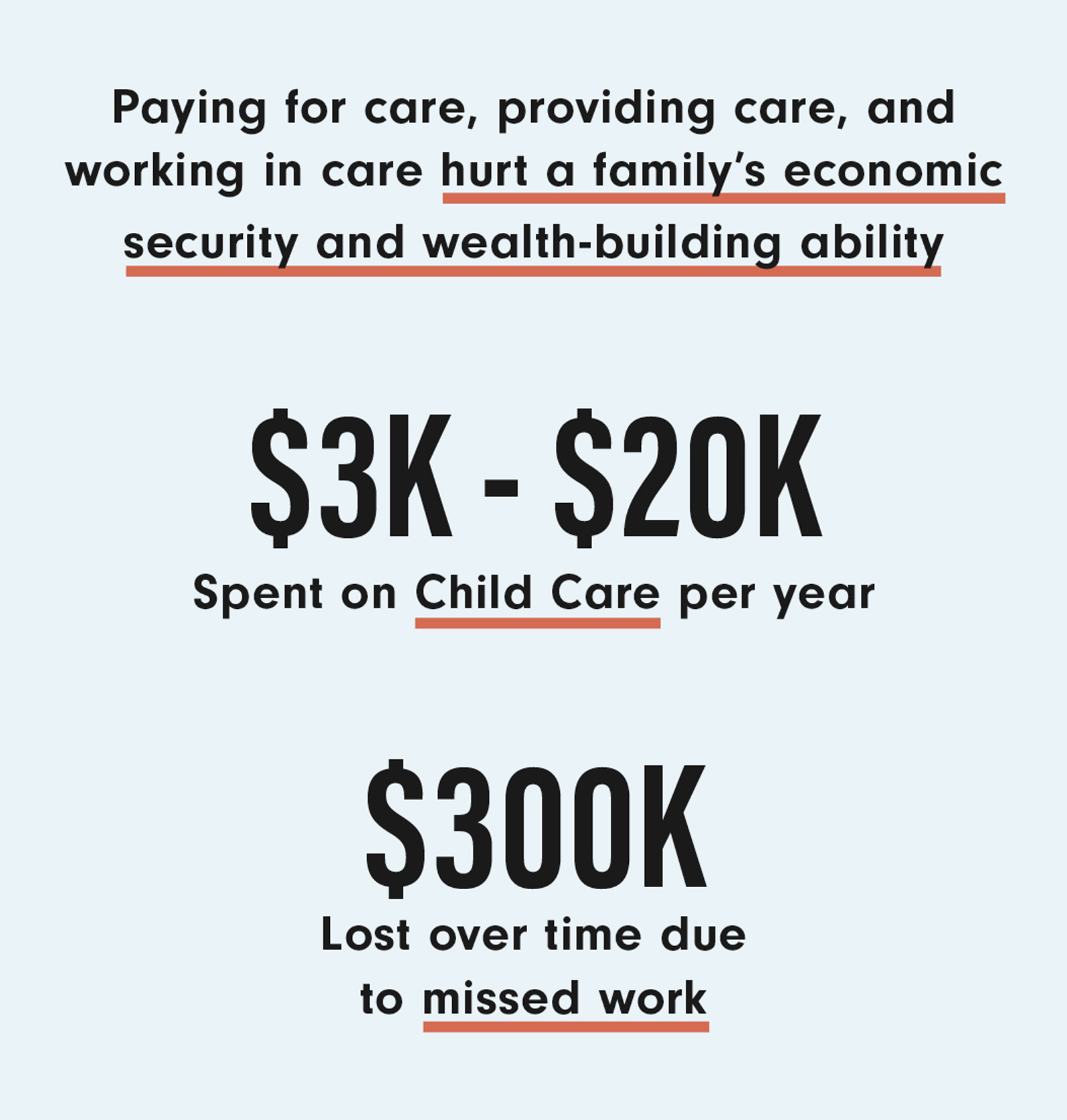
Care is an
Equity and Justice Issue
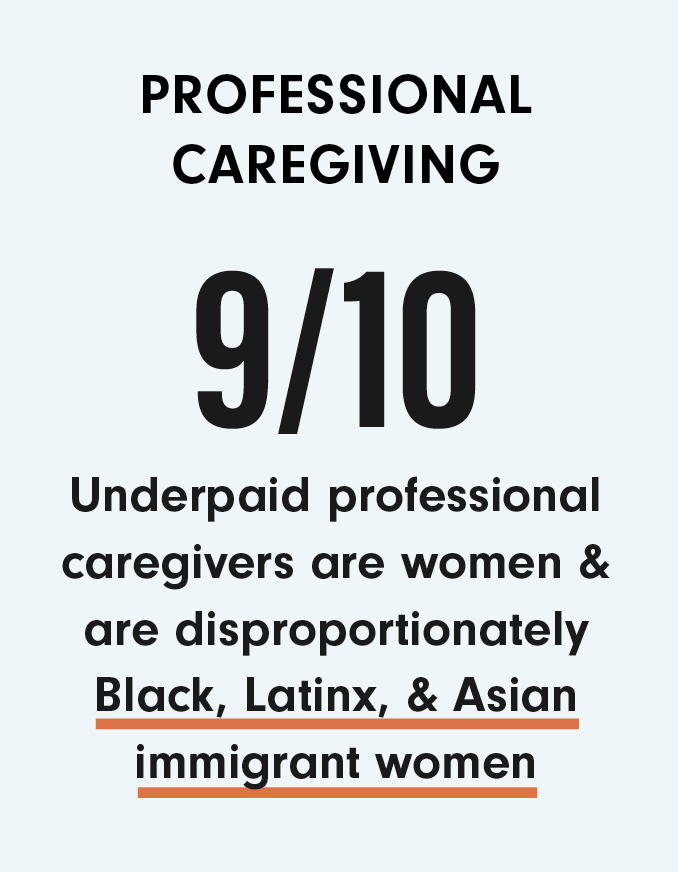
The lack of a public care infrastructure and the undervaluing of care work contribute to significant gender and racial inequities.
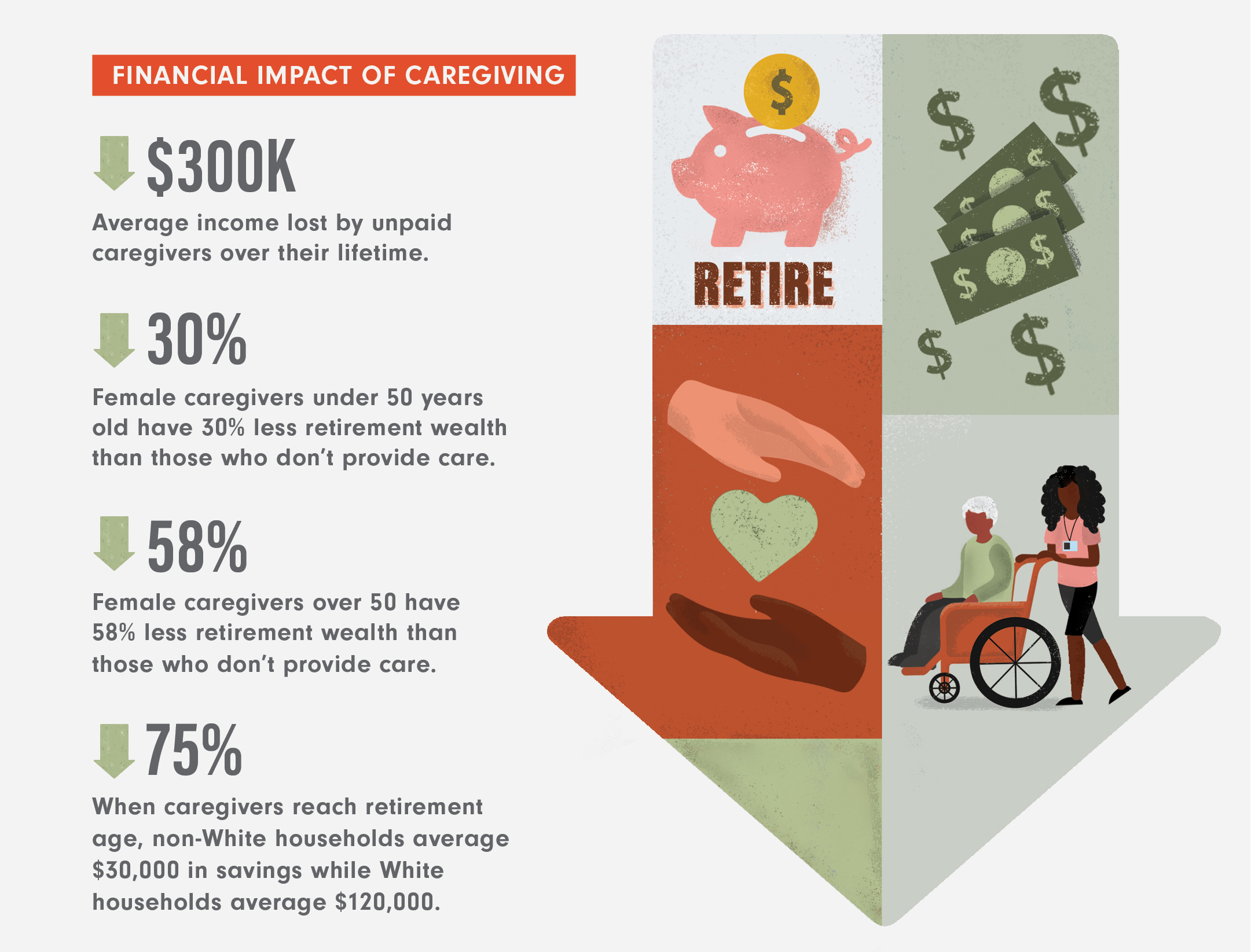
Care is a
Children’s, Aging, and Disability Issue
Breaking down care silos and supporting care across generations yields benefits for children, older adults, and people with disabilities and addresses ageism and ableism.
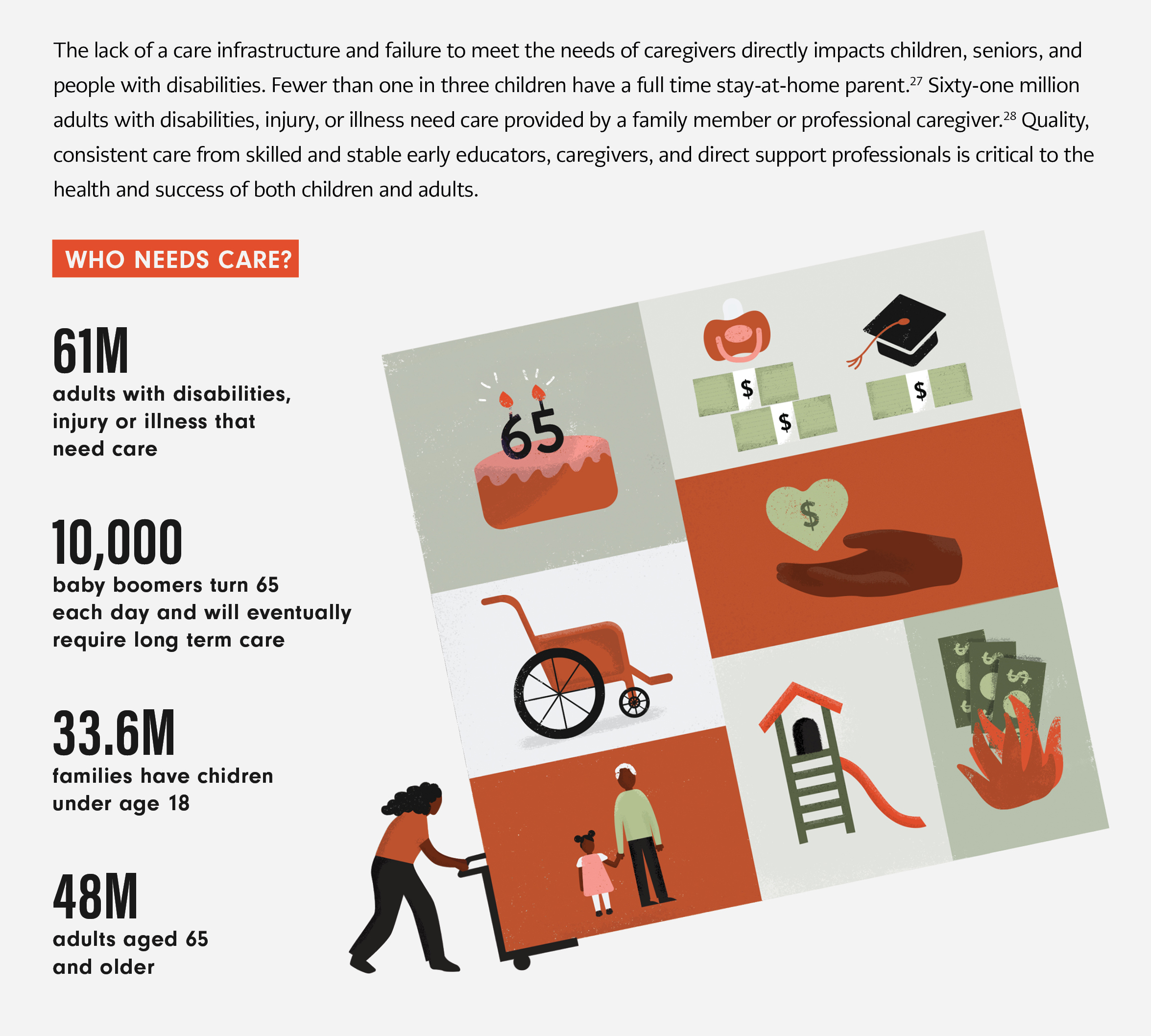
Key Policies and Programs
TO ADDRESS THE ECONOMIC INEQUITIES
ARISING FROM CARE ECONOMY ISSUES
Building a robust care infrastructure—a publicly funded system that recognizes care as both an individual and social responsibility, values care workers, and supports family members to both care and provide financially for each other— will support economic recovery, growth, and prosperity and support racial and gender equity and family well-being.
On the federal, state, and local level, policy makers can take a number of steps to achieve these goals.
-
Child Care and Early Learning for All
-
Paid Leave for All
-
Long-term Services and Support
-
Public Policies Must Value the People Who Care
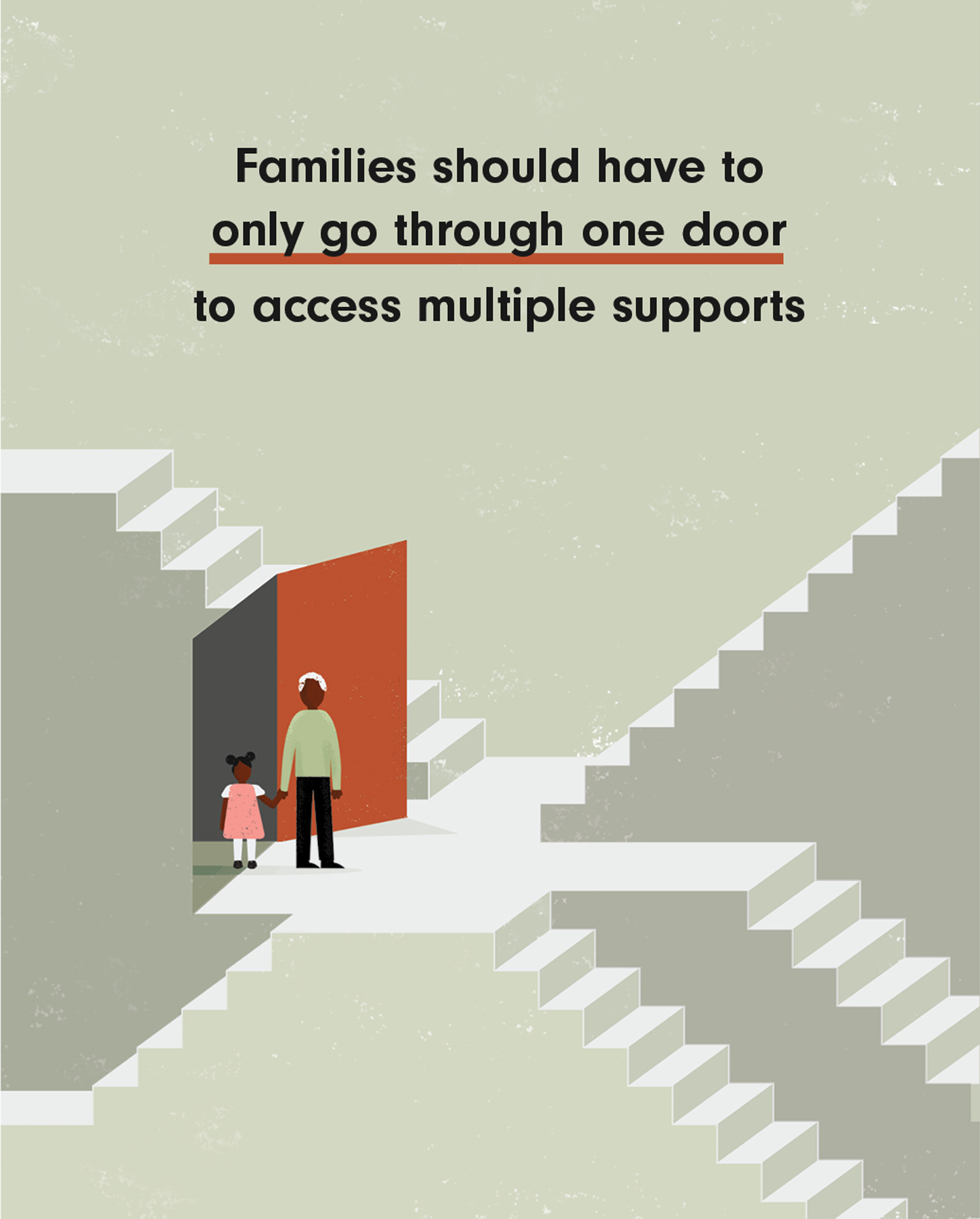
In addition to the framework described above, a number of related policy ideas, as well as principles and programmatic solutions, can ensure fair access to and usage of the care infrastructure. For example, policies should be portable across jobs and employers; families should have to only go through one door to access multiple supports; technology should be deployed to foster efficiency without harming access; and culturally sensitive coaches or navigators can help families understand what they are eligible for and gain access to that support.
Strategies for Philanthropy

FUND POLICY ADVOCACY THROUGH NATIONAL CARE COLLABORATIONS

FUND STATE AND LOCAL INITIATIVES

FUND POLICY IMPLEMENTATION AND DIRECT SERVICES

FUND GRASSROOTS ORGANIZING

FUND RESEARCH

FUND CULTURE CHANGE STRATEGIES
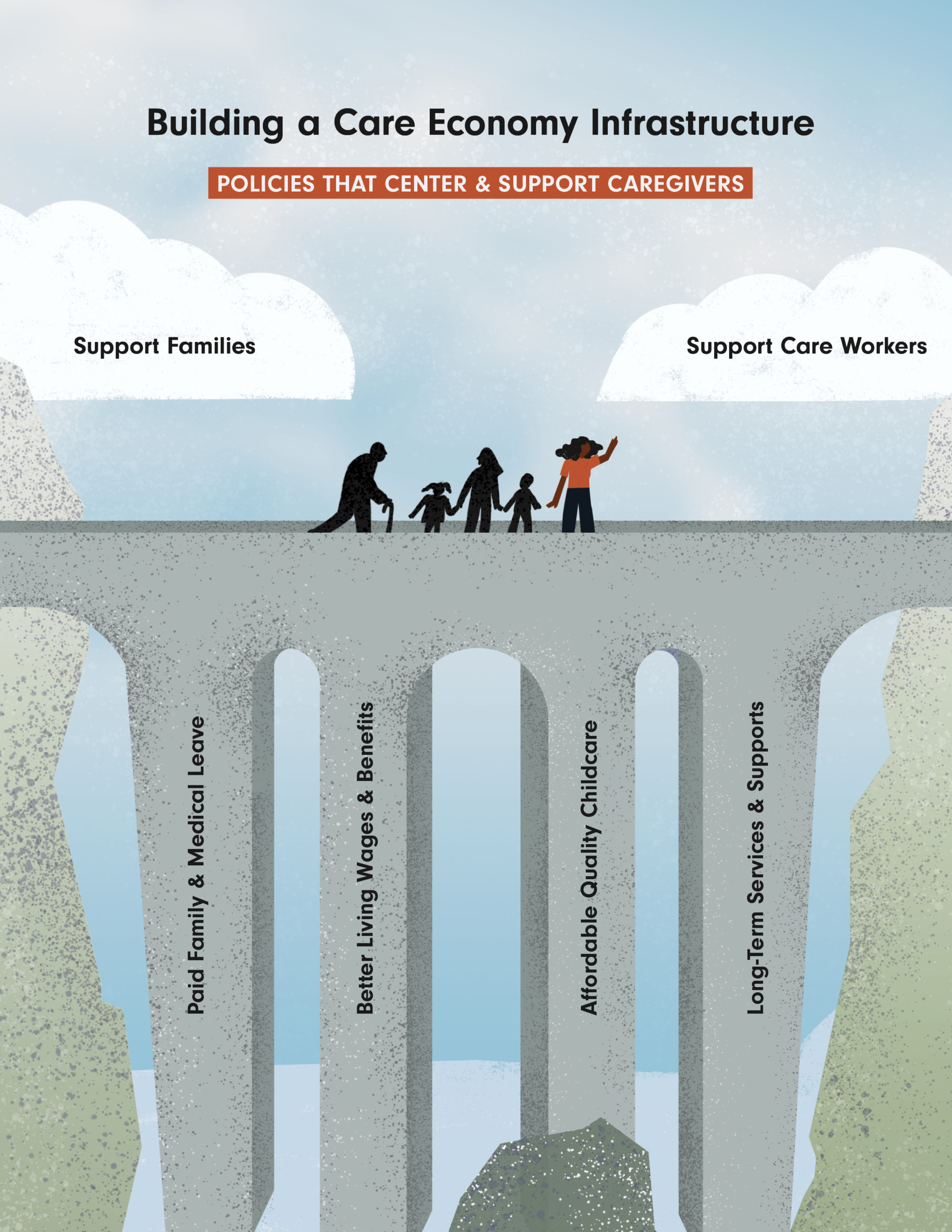
Additional Resources
Investing in Caregivers: An Essential Resource for Our Nation: This issue brief by RRF Foundation for Aging provides an overview of the key issues around caregiver support, describes some of the work the foundation is funding to address these issues, and invites others to join them in developing the next generation of solutions to address this increasingly important issue.
Scheduling practices fueling worker turnover, hurting employers: The attention on normally low-profile and often low-pay professions has exposed problems for service sector workers that aren’t new – just newly visible. Among them: lousy work schedules. Those schedules were the focus of an issue brief released by the Federal Reserve Bank of Boston, “Unstable, unpredictable, and insufficient: Work scheduling in the service sector in New England.”
AFN CWWG
Asset Funders Network (AFN) is the leading national grantmaker membership organization focused on advancing equitable wealth building and economic mobility. We gather funders of all sizes and strategies. Our members gain partners and perspective as we work together to create opportunity and prosperity for all.
AFN works to increase the capacity of its members to effectively promote economic security by supporting efforts that help advance equitable wealth building and economic mobility.
Through knowledge sharing, AFN empowers foundations and grantmakers to leverage their resources to make more effective and strategic funding decisions, allowing each dollar invested to have greater impact.
